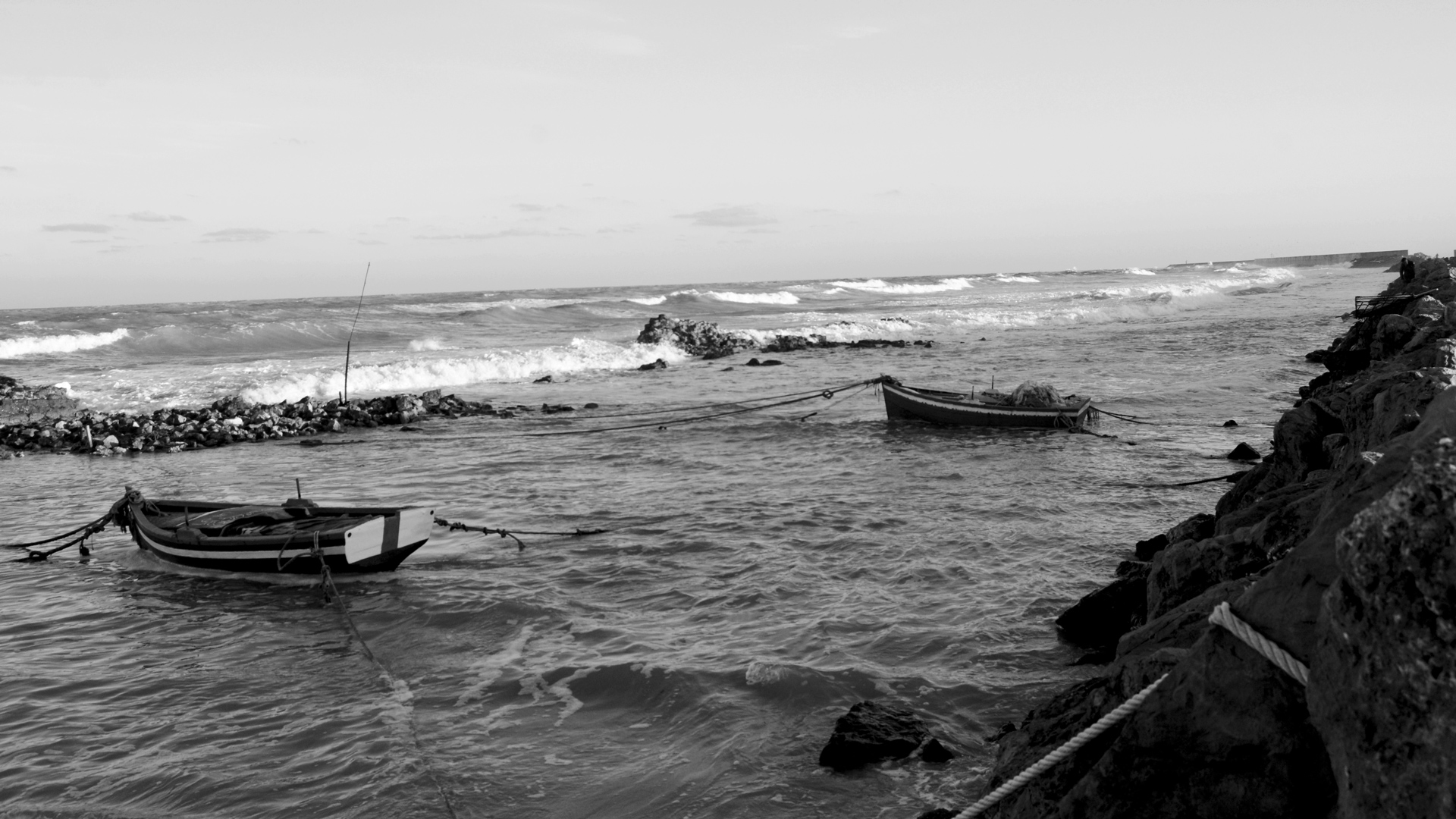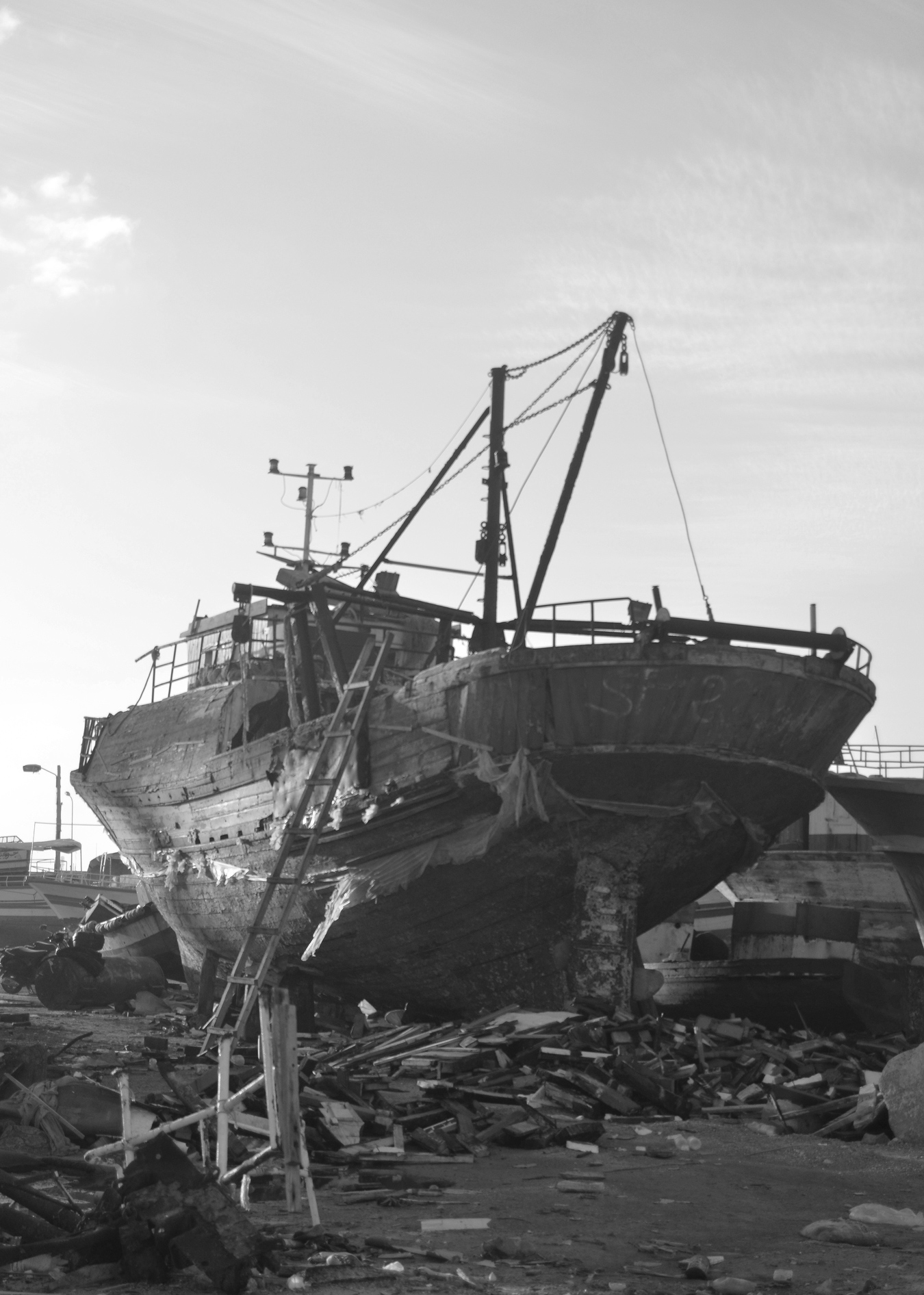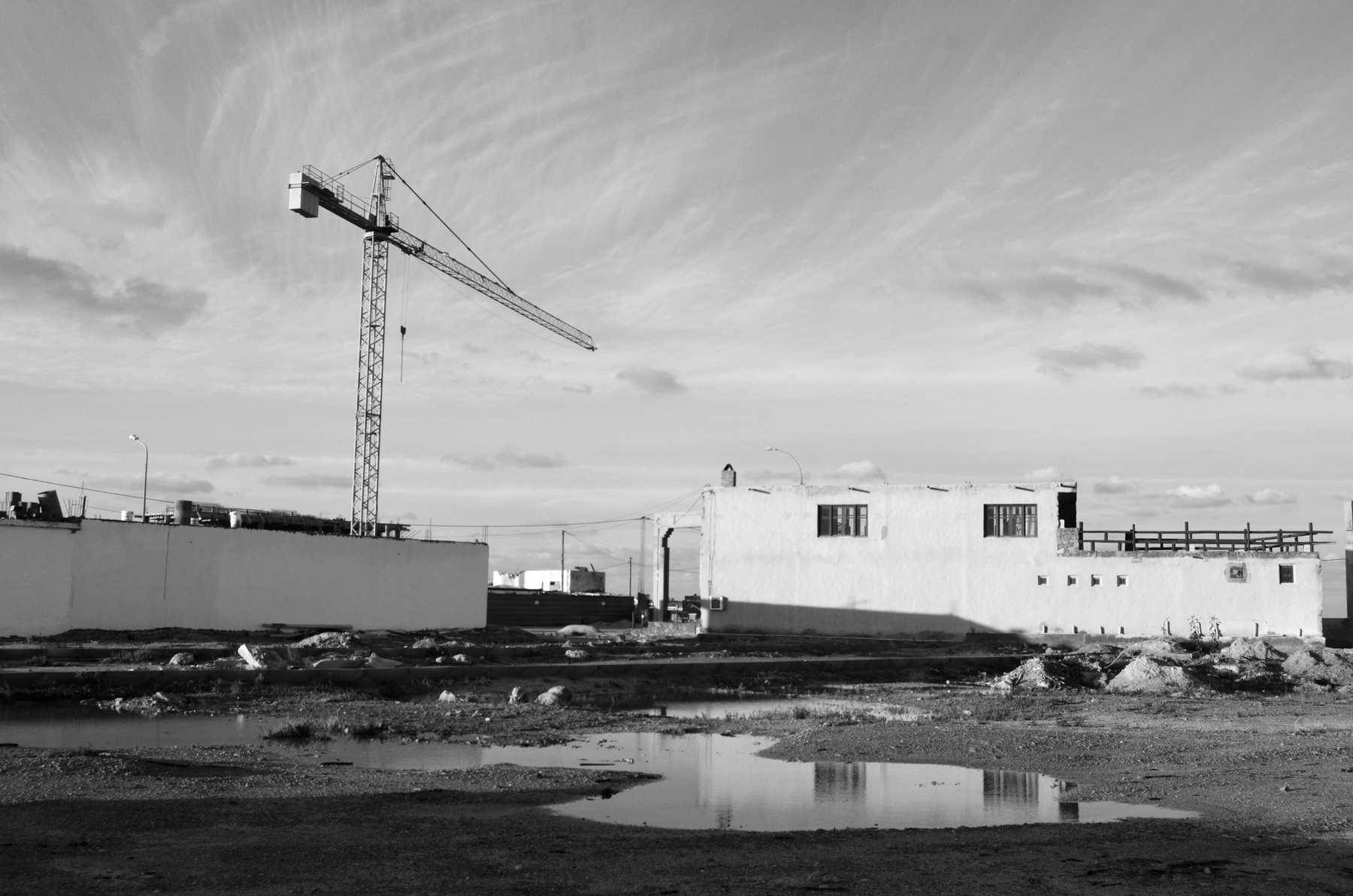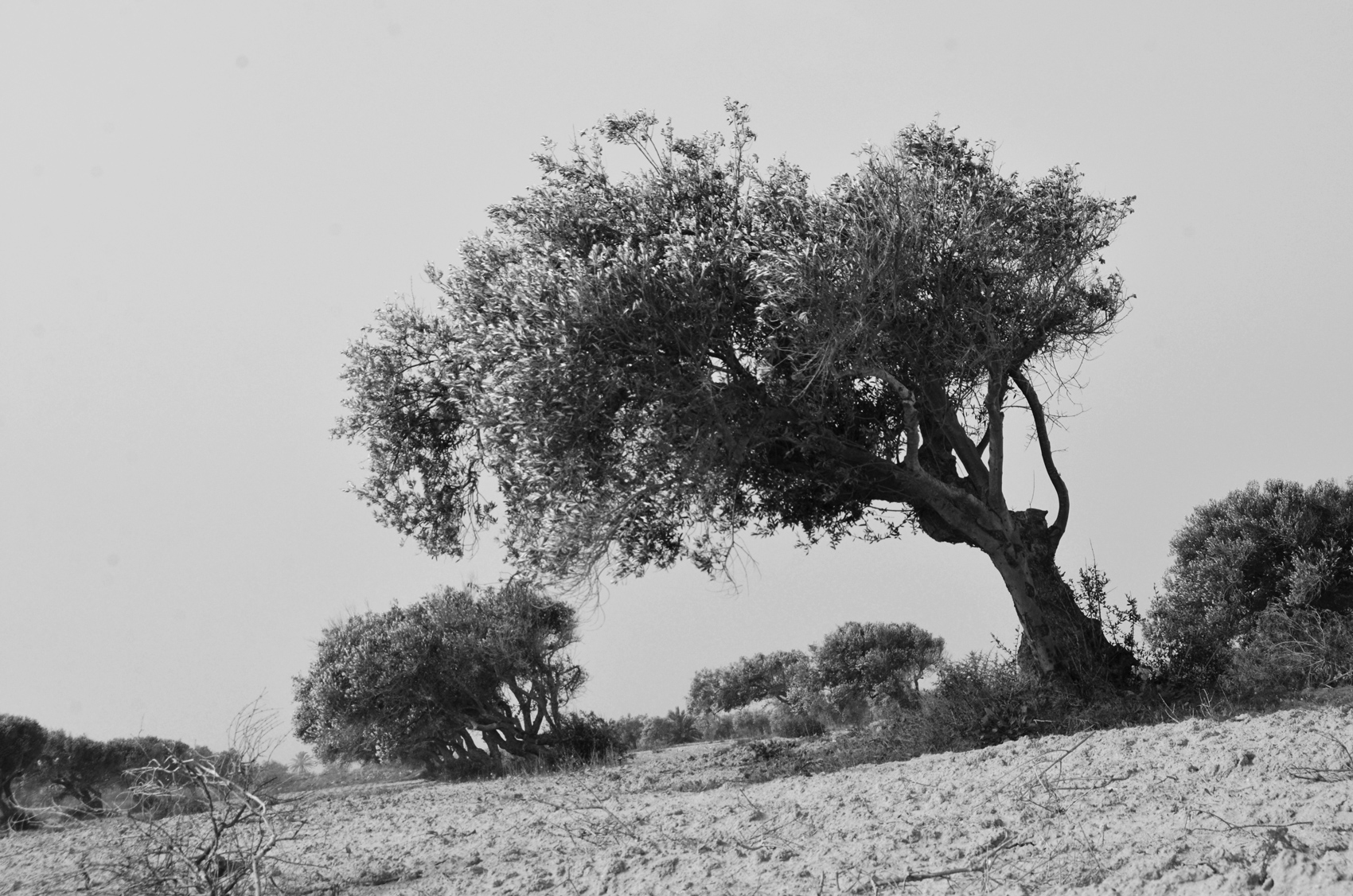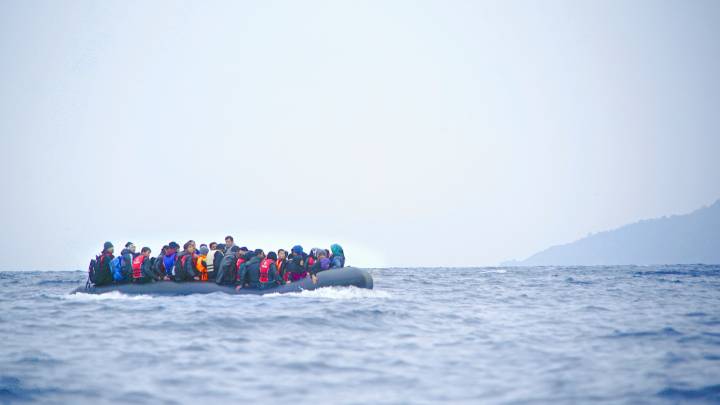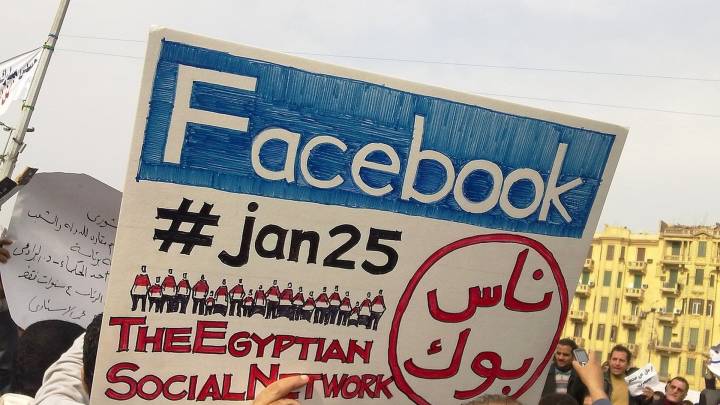Long neglected by the country’s rulers, tribes in southern Tunisia have been both enriched and altered by changes in trade flows and smuggling across the Libyan border.
The louage bounces and rumbles its way into Ben Guerdane. Approaching the town in southeast Tunisia, near the border with Libya, traffic along the desert road slows to a crawl, as makeshift stalls hawking everything from children’s toys to brightly colored suitcases spill out onto the road, threatening to squeeze the flow of cars to a standstill.
Pulling into the careworn louage station in the town center, the police are waiting. Security Services throughout the country have been on alert since a possible Mossad killing of a Tunisian man – a drone expert and member of Hamas – a few days earlier. The Local Libya team is escorted to the police station, a problem is found with the paperwork and our assignment to report from within the frontier town is over.
Smuggling transformed the hierarchy of the tribe.The police in Ben Guerdane have plenty of reason to be wary. The town, all but founded on the smuggling trade, has an established history of volatility. A protest that would later flare into rioting over the border’s closure was already underway. Earlier in 2016, the so-called Islamic State terror group, gambling on the town’s fractious relationship with Tunis – the country’s capital – launched a large-scale insurgency from here. According to the Tunisian authorities, most of the fighters were present within the town long before the attack with no report being made to the security services of their presence.
Societies in towns like Ben Guerdane on Tunisia’s southern border with Libya have developed in parallel to that of the country’s capital and coast, retaining aspects of their traditional tribal identity, as the remainder of the country was absorbed within the European vision of both colonizers and autocrat. In many ways, it has been a relationship founded upon mutual neglect, with Tunis unwilling to confront the ingrained hierarchies of the border, and the border suspicious of any external meddling from a foreign capital.
However, the inevitable rise in the influence of the central state, allied with the wildly different demands of the region’s smuggling industry has seen a paradigm shift take place within Tunisia’s tribal networks, one that has seen their identity reinforced at the same time as their traditional structures have been undermined.
Smuggling in Ben Guerdane is big business. Nearly every item crowding the town’s markets was ordered electronically from here, manufactured in the factories of China and the Far East, delivered to the anarchic ports of Libya, paid for in the banking houses of Dubai and smuggled over the border. According to a 2013 World Bank report, illicit trade from Libya and Algeria costs cash-strapped Tunisia around 1.2 billion dinars per year, (around half a billion dollars). Money that – as the country’s recent round of austerity measures testify to – is sorely needed in the wake of revolution, the disruptive civil war within Libya (formerly one of Tunisia’s largest trading partners) and the perilous impact of domestic terrorist attacks on a once thriving tourism industry.
Tunisia’s tribal identity is as rooted in the regions’ history as much as it is reflected within its present. Originally, tribes such as Ben Guerdane’s warlike Twazin from the Djeffara plain, the stretch of land between Gabes in Tunisia to the outskirts of Tripoli in Libya, maintained a healthy trade with the trans Saharan caravans, safeguarding the traders and their cargo’s passage through their territory. However, with the growth of the Atlantic trade and the eventual loss of the caravan routes, penury followed. On the heels of poverty came colonization, with the nomadic tribes of the border coopted into sedentary settlements such as that at Ben Guerdane.
Nonetheless since the imposition of the border between Libya and Tunisia in 1910, the towns on Tunisia’s frontiers have found themselves willing participants in a burgeoning illegal cross border trade. “Smugglers need borders. They need customs to create value,” explains Hamza Mebbed a researcher at the European University, “So, right after 1910, French goods were smuggled to Libya.”
“Smuggling transformed the hierarchy of the tribe,” Mebbed continued. New elites emerged. “The big man in the tribe is not necessarily a big man in smuggling. Possibly even the opposite. New self-made men emerged, who became powerful and had money.”
Consequently, while the significance of tribes and tribal membership decreased for some, for others – as often as not those involved in smuggling – it has become a way of life. Tribal identity and tribal relations play an important role in regulating cross border smuggling, believes Mebbed. However, though smuggling may have changed the structure of Tunisia’s border tribes, the bond that holds these groups together, reinforced by the perils of the cross border trade, has only been reinforced. “You can sell millions of Dinars without any contract, just your word, because people know each other. This is the tradition. These are the tribal codes, so this is the reality.”
The reality for those such as Mansour, who makes his living trading in goods smuggled over the border from Libya, the tribe is both a source of pride and an identity beyond any affiliation he may be expected to feel with a capital that has given him little. “Tribes” he tells a local journalist, “exist only in the south and not in the north and the Sahel, because people in the south, and especially in Ben Guerdane, still respect the authority of their elders.”
In the 20th century, as smuggling on industrial levels first began to take root within the border towns, the autocracies of both Libya and Tunisia – faced with a dearth of genuine political influence – sought out the new emerging elites. Their hope was that these new strongmen would at least be able to police the cross border traffic as well as provide some kind of support structure to the marginalized and isolated communities of the borderlands. Whether by accident or design, in doing so they succeeded in bestowing still further power and prestige upon the new chieftains of the frontier, strengthening their grip upon both trade and town.
However, though tribes remain a potent economic force in the borderlands, some in Ben Guerdane talk of the gradual encroachment of the state into areas that would typically fall under the preserve of the tribe. That is, as tribal structures have shifted to adapt to the demands of smuggling, the vacuum left in their wake has been filled by the state. Mohamed Zouari, (no relation to the assassinated engineer in Sfax) a professor of modern history from Ben Guerdane and a member of the Rabai'a tribe says, “The authority of the tribe or clan has fallen considerably since the eighties. You can see it in the lifestyle of Tunisian society, especially in the borderlands of the south, it has transformed the nature of the Bedouin into something closer to urbanization.” Zouari continued, noting “The decline in the status of the tribe, has made people dependent on official authority as a defender, or protector of the rights and private property.”
However, with the constitutionally mandated devolution of power from Tunis to the country’s 264 municipalities expected in November of this year, it is possible that the South’s tribal network may yet find a new purpose within the region’s marginalized wastes. With much of the administrative power of the central state passing to the previously insignificant municipalities, direct local democracy and a resurgence in the importance of the tribe, for better or for worse, may again become a reality. For Rikke Hostrup Haugbølle, assistant professor at the Royal Danish Defense College, that might not be entirely a bad thing. “If we look at what’s happening in Europe and with Trump, you can see that people feel remote from politicians and, if we look at the tribal system, it does have direct lines to power and people know how they can get through to power.” Consequently, as the US and much of Europe seeks to define themselves with their borders, the era of Tunisia’s tribes may still be a long way from over.
Simon Speakman Cordall is a Tunis-based journalist.

